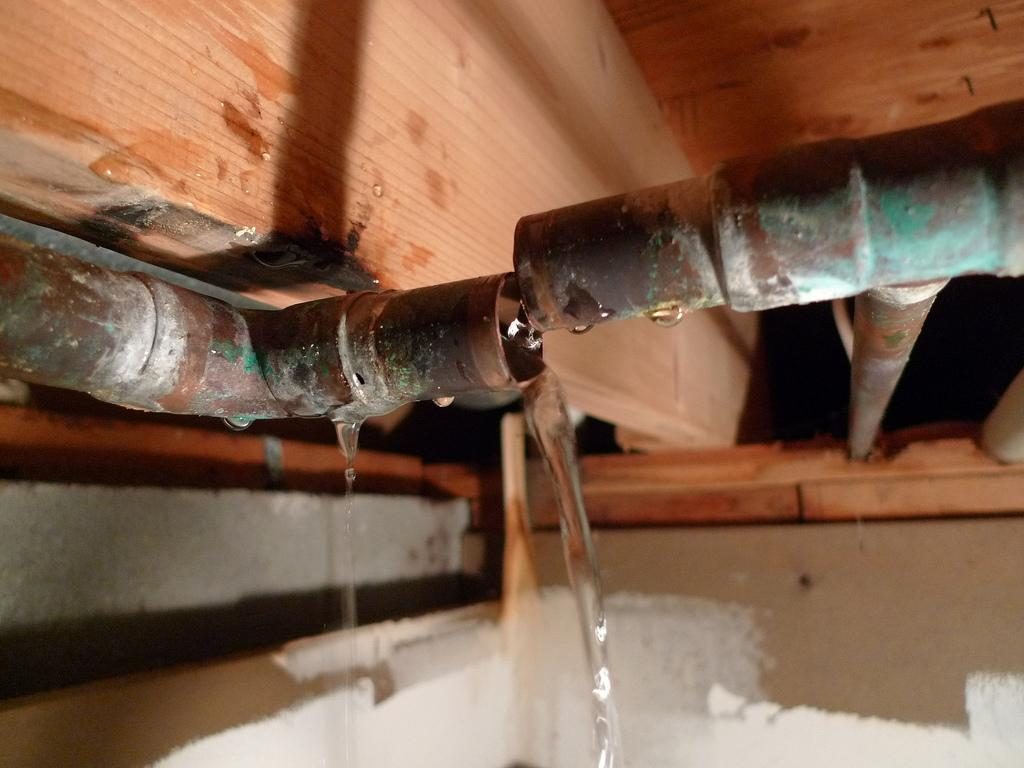There is not a single person who does not worry that something bad is going to happen to their house while they are away. The biggest fear would be that of a fire breaking out, but in most cases, there is a far more destructive force at play. You may not think of water as a potential home destroyer, but it has the power to give you a headache, if not leave you homeless. There are numerous ways in which it can cause damage to your property, but you are not entirely powerless. In fact, water damage can be prevented if you pay close attention to the following points.
Leak Inspection
Unless a major pipe burst wide open, you are not likely to give much attention to a simple leak. For instance, there might be some water around the shower cabin, but most people will not take great notice of it. They will just let the puddle be and it will grow larger over time. This is bad, as all leaks must be dealt with immediately. Otherwise, mold and mildew will start to form, adding to poor air quality in the already steamed bathroom. These cause respiratory diseases, especially in children whose immune system is still developing. On the other hand, if the leak persists, it is bound to cause structural damages, as it can corrode metal. If such a leak is not in a benign place, like near a support beam, or under the roof, it can cause structural damage to the house. It is not unimaginable that the entire ceiling could crash down under the weight of water that it had been previously soaked with. That is why it is essential not only to keep an eye out for leaks but to react and fix them as soon as you notice them. The more time elapses, the greater the final damage will be.
Appliances Upkeep
Other than the plumbing system and torrential rain, the source of water damage could be house appliances. Many of them use water to operate, such as a dishwasher, water heating, washing machine etc. If they are left unattended, the damage can be significant as large quantities of water can leak out in a matter of minutes. Tanks of water heaters can have up to 80 gallons in volume. If they malfunction, all that water is going to leak out very quickly straight into your hall, bathroom or basement. That is why a proper upkeep and regular changing of house appliances is a must.
Emergency Repairs
We have talked about the possible scenarios in which water might swiftly damage your house. Even if this occurs, you can still do damage control by simply being prepared. Always have near at hand a number of expert emergency plumber which operate 24/7. Your local plumber might be a nice guy, but will he be ready to rush to your house in the middle of the night if a pipe bursts open? Plumbing companies usually employ more than one plumber which enables them to always have a plumber they can call in case of an emergency. Furthermore, some even have emergency response units that react instantly.
Do You Know Where The Water Main In Your House Is?
Once a plumber or the waterworks arrive at the scene, the first thing they do is shut off the main valve. Depending on their time to respond, in many cases, this is too late to prevent water damage. That is why you yourself have to be ready to react and know beforehand the location of the main valve in your house. It is usually located in the yard, where the pipeline enters your house. Another good idea would be to shut it off when you go away on holiday, so you are sure that water will not do any damage since it is not running into your house plumbing.
Water Pressure
Much like high blood pressure damages the blood vessels over time, so does high water pressure damage the pipes. When it is combined with bitter cold and fluctuating temperatures, high water pressure can cause pipes to burst. That is why it is important to measure the pressure by using gauges that can be bought from any hardware store. In a home, normal pressure ranges from 40 to 70 psi. Any figure higher than that indicates that you have a problem that requires the installation of a pressure regulator to solve it.
“Better safe than sorry” is the credo of prevention of water damage. You have to be fully aware of all the potential dangers water can do to your house and overall health, so take matters seriously. By regularly inspecting the pipes and appliances for leaks, you are saving yourself the trouble of having to deal with a full-fledged flood in the future. Prevention, as described above, is much cheaper than having to have your house refurbished due to extensive water damage.

